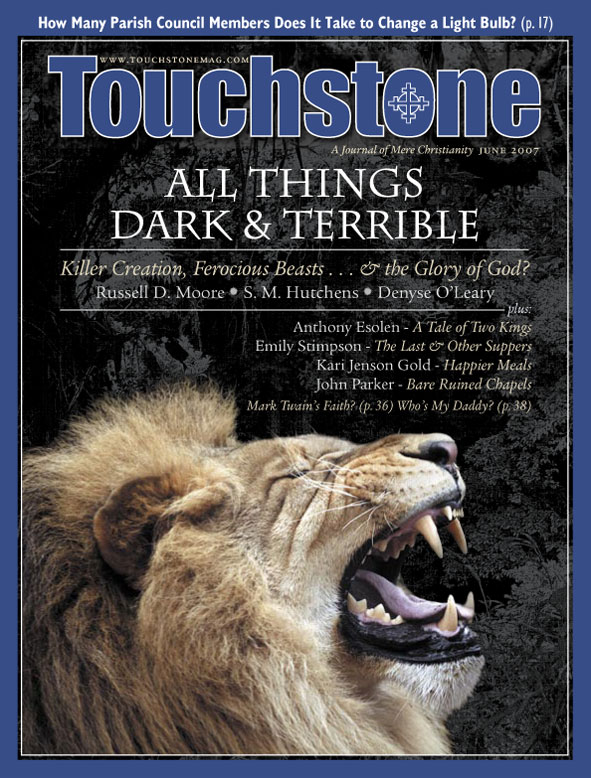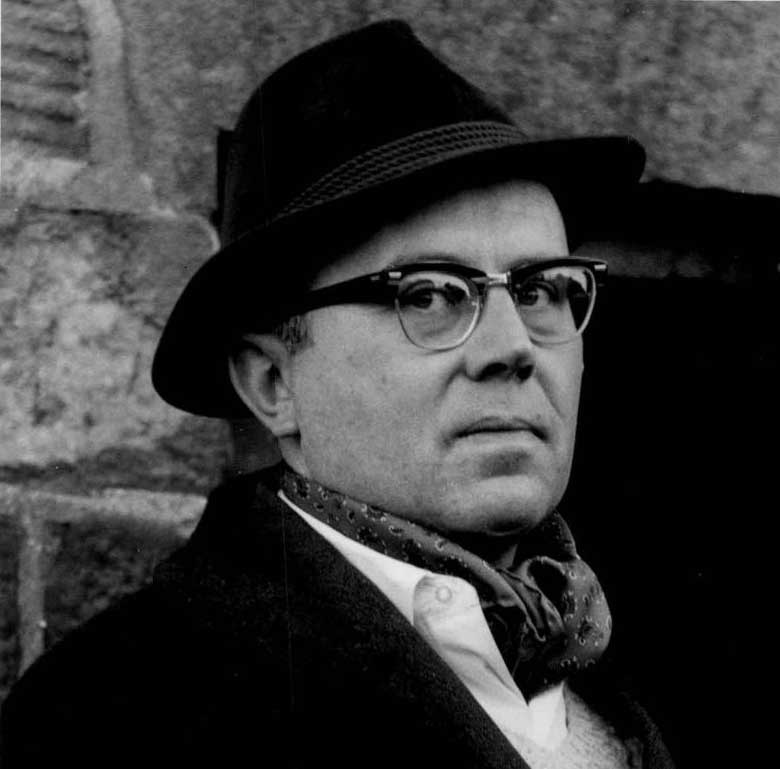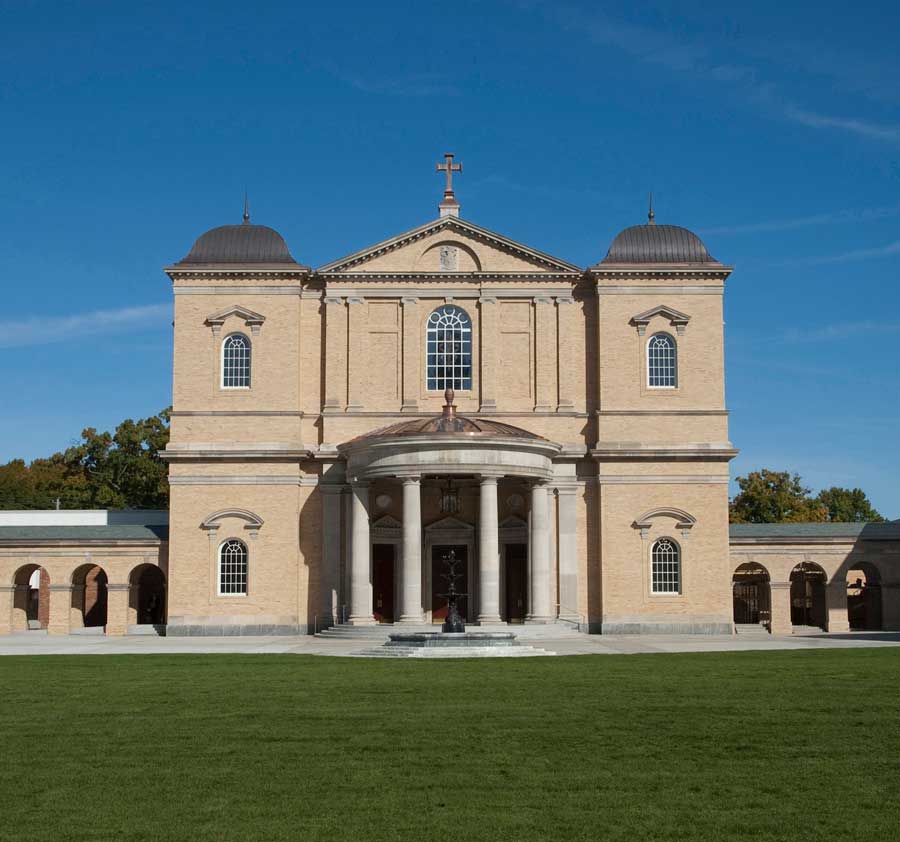Our Sorry Freedom
How the Culture of Tolerance Destroys by Forgiving
The cartoonist Johnny Hart, creator of the comic strips B.C. and, with Brant Parker, The Wizard of Id, recently died of a stroke as he sat at his storyboard. He had embraced the Christian faith some years after his first success as a cartoonist, and joined a Presbyterian church near the old mill town in upstate New York where he lived an apparently modest and happy life with his family.
B.C. was a genuinely funny strip, drawn with a minimalist subtlety, as was the very different Peanuts strip by Charles Schulz. But while Schulz conceived of stories steeped in Christian theology while seldom mentioning God explicitly, Hart began to write openly about the Cross and the Resurrection.
If you do an Internet search for Hart’s name, you will discover sites of incredible vitriol directed against a man whose great offenses were that he professed his Christian faith publicly, and that he did not believe in evolution. You will also discover Christian sites that celebrate Hart, perhaps missing what was so Christian about B.C.
Essential Humor
I mean that long before Hart had ever thought to bring up Easter or Christmas in his strip, and indeed before he had embraced the Christian faith, he had caught something of the essence of Christian humor—or Jewish humor, for that matter, because in this regard the faiths are at one.
The “hero,” B.C., is just an ordinary caveman, with nothing striking about him; a little shy, easy to impose upon. He bears a faint but definite family resemblance to his no doubt distant relations, Gimpel the Fool and Freddie the Freeloader.
He and the other characters in that world of sand, rocks, turtles, and archaeopteryxes are all a bit silly, without being obviously stupid or obnoxious; they are the causes and also the butts of humor. They fail, but are forgivable.
Such forgiveness is no mere sentiment. It is founded upon the deep knowledge that we should forgive, because we ourselves need forgiveness: With what measure we measure, so shall it be measured out to us. And that in turn should cause us to remember that there are more important things in heaven and earth than the particular public sin before us at the moment (whether that public is national or local or even neighborly or familial).
In other words, the faith helps to place our controversies before the glory of the God who commands us to forgive. If I keep an eye on eternity, even though I live in the passing hour and must redeem the time, still I know that I am not imprisoned in that time, and that one day all our strife will be resolved. I can say, with Christ, “Father, forgive them, for they know not what they do.”
I have the freedom to laugh at others and myself, not with a sneer, but with forbearance and generosity. I have the freedom to say “I am sorry,” genuinely, as a plea for forbearance for human weakness and folly, and not as a tactical maneuver to control the damage the public exposure of my sin might cause me.
Anthony Esolen is Distinguished Professor of Humanities at Thales College and the author of over 30 books, including Real Music: A Guide to the Timeless Hymns of the Church (Tan, with a CD), Out of the Ashes: Rebuilding American Culture (Regnery), and The Hundredfold: Songs for the Lord (Ignatius). He has also translated Dante’s Divine Comedy (Random House) and, with his wife Debra, publishes the web magazine Word and Song (anthonyesolen.substack.com). He is a senior editor of Touchstone.
subscription options
Order
Print/Online Subscription

Get six issues (one year) of Touchstone PLUS full online access including pdf downloads for only $39.95. That's only $3.34 per month!
Order
Online Only
Subscription

Get a one-year full-access subscription to the Touchstone online archives for only $19.95. That's only $1.66 per month!
bulk subscriptions
Order Touchstone subscriptions in bulk and save $10 per sub! Each subscription includes 6 issues of Touchstone plus full online access to touchstonemag.com—including archives, videos, and pdf downloads of recent issues for only $29.95 each! Great for churches or study groups.
Transactions will be processed on a secure server.
more from the online archives
calling all readers
Please Donate
"There are magazines worth reading but few worth saving . . . Touchstone is just such a magazine."
—Alice von Hildebrand
"Here we do not concede one square millimeter of territory to falsehood, folly, contemporary sentimentality, or fashion. We speak the truth, and let God be our judge. . . . Touchstone is the one committedly Christian conservative journal."
—Anthony Esolen, Touchstone senior editor









